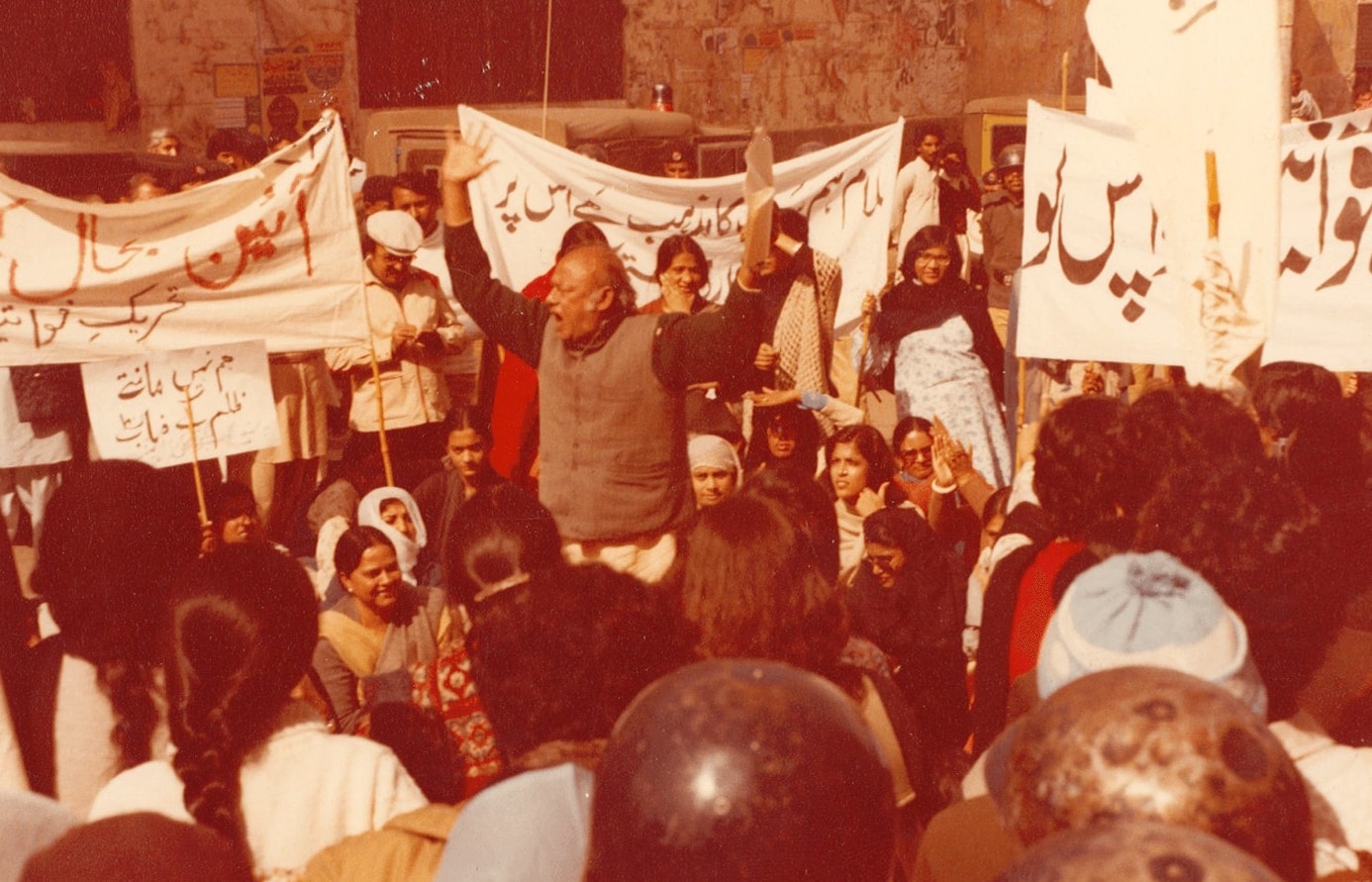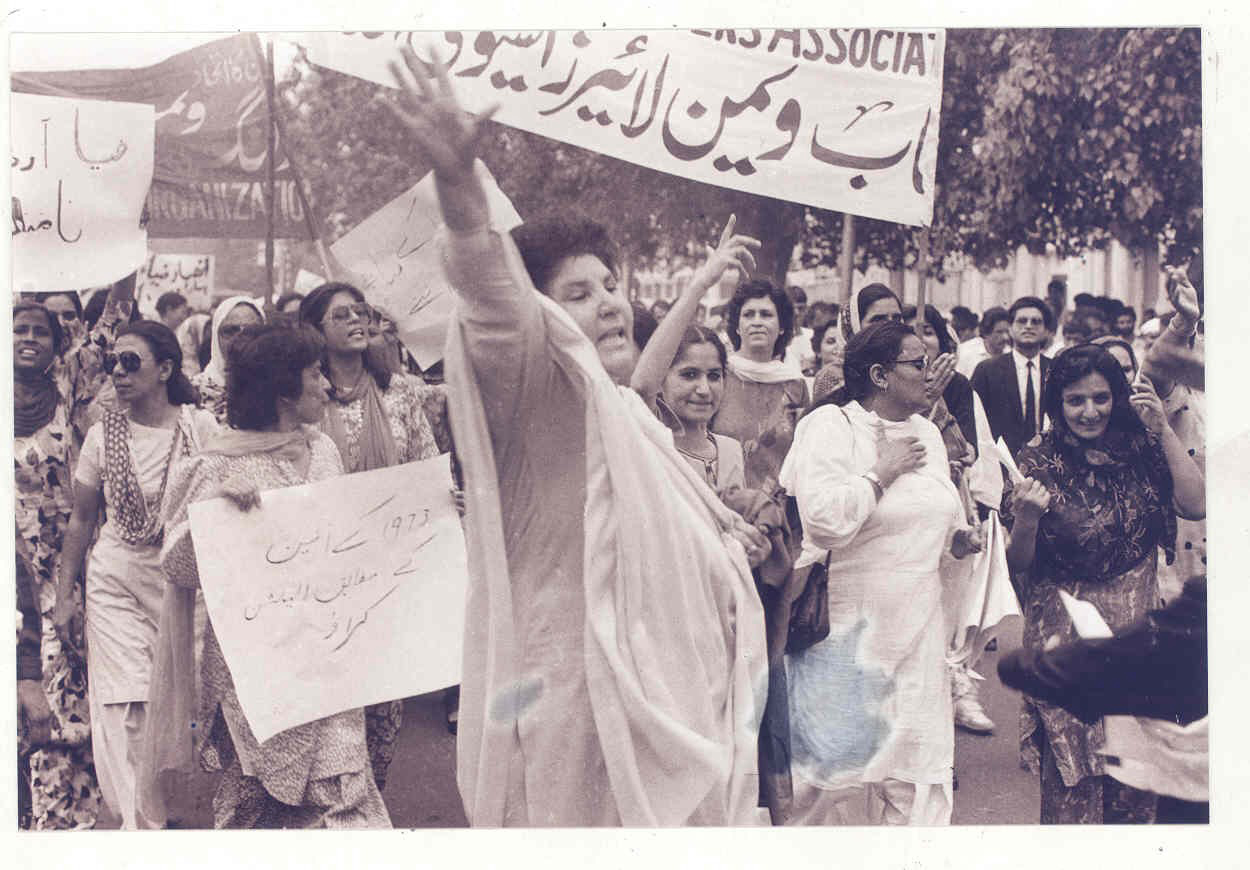Women’s Action Forum Lahore, WAF
The first conviction under the Hudood Ordinances was the event which sparked the formation of Women’s Action Forum (WAF). Allah Bux and Fehmida vs the State was the case where the two defendants were sentenced to a hundred lashes and death by stoning respectively for adultery. Women’s organizations and concerned activists came together to discuss ways to counter the influx of changes instituted by General Zia-ul-Haq’s regime. Conducted on September 16, 1981, in Lahore, this meeting was where it was decided to form the Khawateen Mahaz-e-Amal (Women’s Action Forum). Established organizations of the time, such as the All-Pakistan Women’s Association (APWA), endorsed WAF and chapters were formed in other major cities of Pakistan.
WAF defined its agenda as raising consciousness and protecting the rights of women. Most of its leadership belonged to members of the middle and upper-middle classes who had been professionally trained. Several WAF founders belonged to homes where their mothers had been part of earlier struggles for women’s rights. This may have been as a part of Pakistan People’s Party (PPP) or other leftist movements. The circumstances under which WAF was formed demanded a renewed assessment of the role of women’s activism with the state. Previous forms of social welfare were no longer seen as compatible with the current historical reality, leading to a more radical form of mobilization and advocacy.

WAF was also structured to be non-hierarchical and non-political. It functioned on the premise of collective leadership, with a working committee with rotating conveners meeting daily responsibilities. Members were kept engaged with regular general body meetings. The first WAF convention was held in 1982 in Lahore. The organization deliberately chose to define itself as non-political meaning it would not be joining any political party in its struggle. It was understood that its aims, such as challenging the military regime, were deeply political.
From the time of its conception to 1985, WAF responded to the instituted martial law using a range of methods and tactics. To counter the propaganda which was being produced by orthodox maulvis and the larger religious right, they lobbied potentially sympathetic allies to the cause. These included editors, writers, government officials and members of the Assembly. It also took pre-emptive measures such as the release of statements and resolutions against laws which were set to be introduced by the government.

The impact which WAF had on feminist organizing in Pakistan was significant. It created a network of cooperation and coordination between various women's organizations and concerned individuals in different parts of the country. These linkages extended to trade unions, political parties, and joint action groups. In times of crises, these would prove to be incredibly useful for swift mobilization. The way WAF raised issues concerning women at the national level also led to various political bodies adopting sections on women’s issues in their manifestos. With the public demonstration against the proposed Law of Evidence on February 12th, 1983, which was the first protest of its kind against the martial law regime, there was an alteration in the originally intended law. It was not released with the discriminatory clause.
WAF continues to be active and supportive of contemporary feminist collectives and movements in the country.

